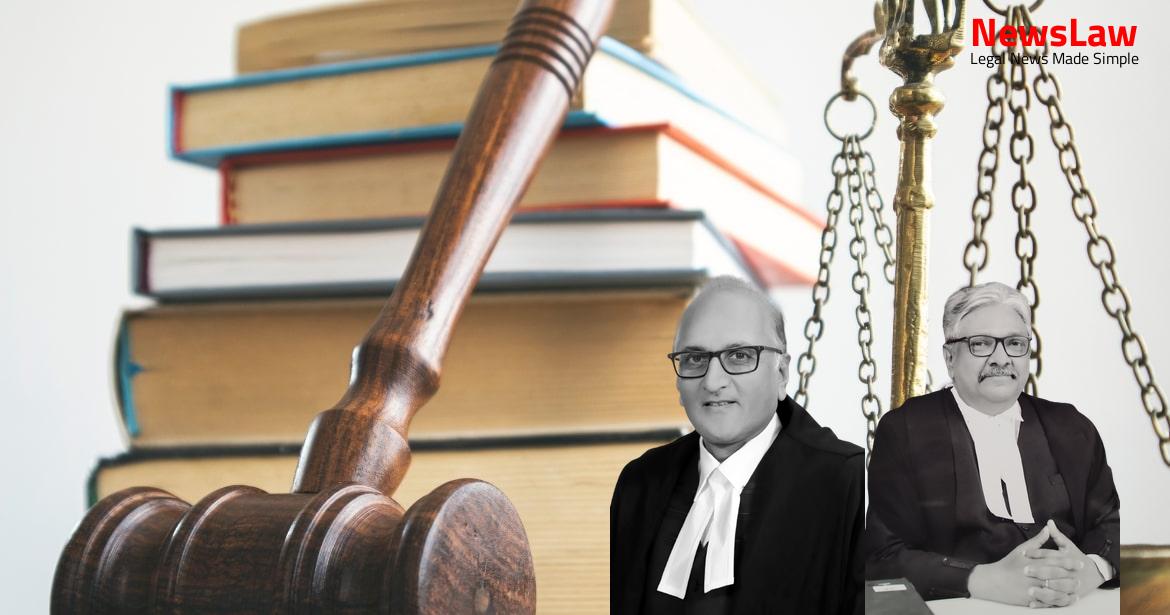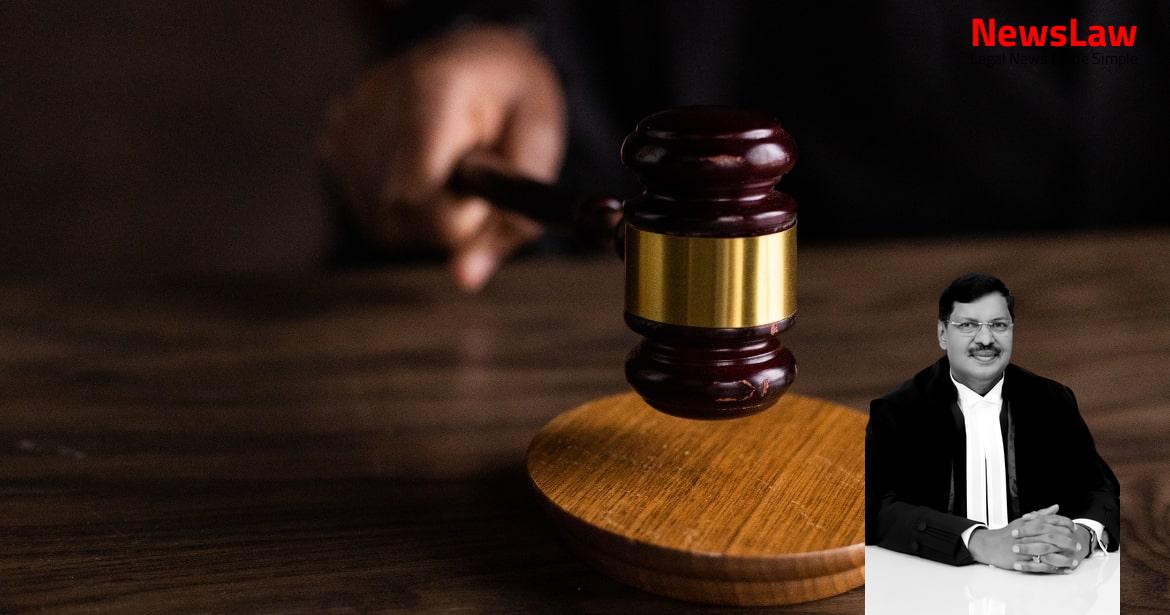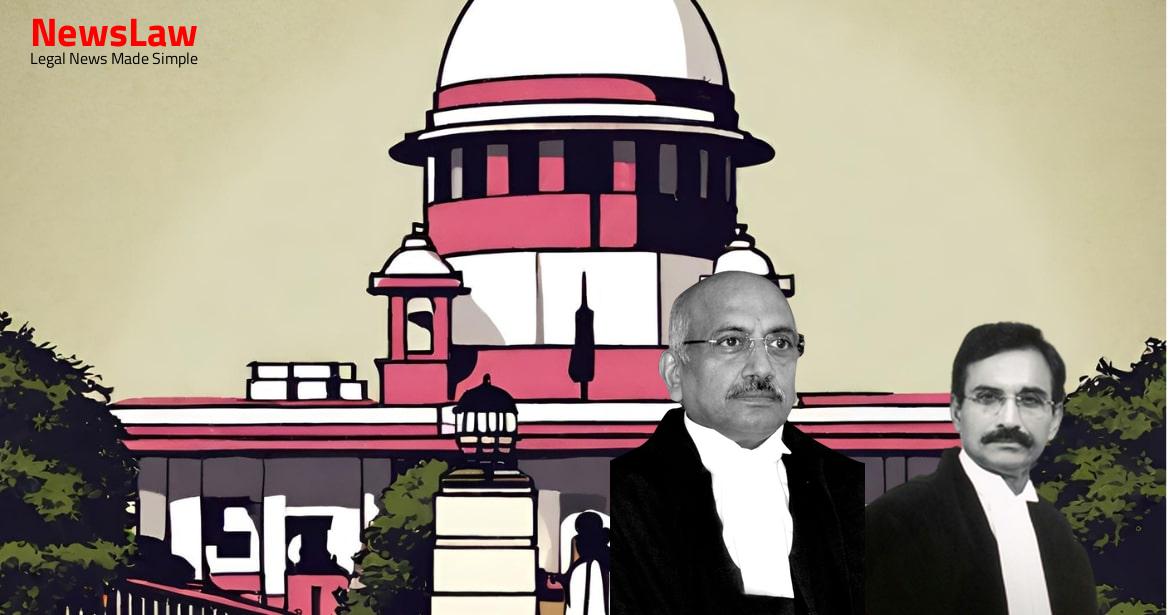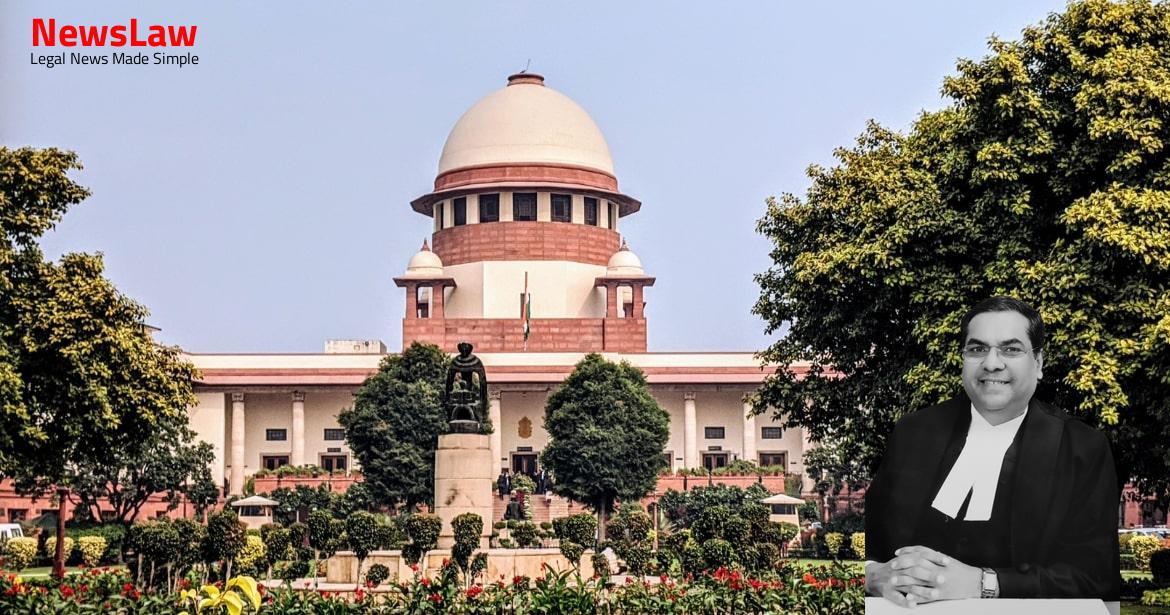Delve into the nuances of a recent court judgment that scrutinized the legality of imposing conditions through license restrictions. Explore the detailed legal analysis undertaken by the court in evaluating the constitutionality of these restrictions and their alignment with regulatory statutes. Uncover the implications of the court’s decision on overarching principles of law and governance.
Facts
- Counsel argued that the restriction on the number with a further restriction on gender of the performers in an orchestral combination is restrictive of the performers’ right and the organisers’ rights.
- The restriction could prohibit all-male or all-female bands and orchestras from participating, violating Article 19(1)(g) without any reasonable justification under Article 19(6).
- The composition of performers in an artistic performance like an orchestra should be left to the discretion of the band or group organizing the business.
- The High Court upheld the conditions imposed by the Commissioner, stating they were within the powers granted under the Act, 1951, and rules framed under it.
- The High Court rejected the writ petitions challenging the conditions, affirming the Commissioner’s authority to impose essential conditions for orchestra bars.
- Commissioner of Police, Brihan Mumbai added several conditions to the existing conditions mentioned in the Premises License for Orchestra Bars.
- The conditions were added under Section 33(1)(w)(i) and (w)(ii), Section 162(1) of Act, 1951 read with Rule 108A, 109, 118, 207, and 209 of the Rules, 1960.
- Orchestra Bars are required to secure Premises and Performance licenses under the Licensing and Performance for Public Amusement including Cabaret Performance, Melas, and Tamashas Rule, 1960.
- Conditions added by the Commissioner were challenged in W.P No. 7962/2010 and connected matters.
Also Read: Presumption of Genuine Endorsements in Cheque Case
Issue
- Key issue: Whether conditions imposed through license restrictions are impermissible as they are not part of the rules or enacted in any provision of law.
- Question of violation: Whether these conditions are violative of Articles 14 and 19(1)(g) of the Constitution of India.
- Previous decisions: Previous cases focused on whether a total ban on dancing in bars was justified and if it infringed upon Articles 14 and 19(1)(g) of the Constitution of India.
Also Read: Medical Negligence and Compensation: A Landmark Decision
Arguments
- History of legislation shows that orchestra bars are a new form of dance bars where women previously employed in dance bars now perform as orchestra artistes.
- Impugned conditions do not violate Article 14 as they apply to all establishments, and the condition of having only four women has been made under Article 15(3) for safety of women employees/artistes and in the interest of the general public.
- Only three out of 254 establishments have challenged the impugned conditions, and criminal cases have been filed against these three.
- Conditions have not been challenged by any individual artist or association of artists and are meant to protect the interests of women and prevent exploitation.
- Need for regulations, similar to the challenged conditions, was recognized in a previous judgment.
- Indian Hotels and Restaurants Associations, of which the appellants are members, had accepted the conditions regarding the number of dancers after detailed deliberation in a previous petition.
Also Read: Remand of Writ Petition for Restoration and Decision on Merits
Analysis
- Definition of ‘place of public entertainment’ according to Act, 1951
- Power to make rules or regulations for traffic and order in public places under Section 33
- Restrictions and conditions for holding performances in entertainment premises
- Previous litigations on prohibition and restriction in Maharashtra related to women’s participation in performances
- Statutory provisions empowering authorities to make, alter, or rescind rules for licensing or controlling public amusements or entertainment
- Challenges and amendments in Sections 33(1)(w), (wa)(i), and (wa)(ii)
- Importance of rules in protecting dignity of women and preventing exploitation
- Definition of ‘place of public amusement’ under Act, 1951
- Prohibition exceptions in holding dance performances in various establishments
- The restrictions imposed on dance bars in Maharashtra were challenged on the grounds of violating Article 19(1)(g) of the Constitution.
- The State’s argument that the restrictions are in the public interest and to prevent human trafficking was rejected by the Court.
- The gender-cap on performers in dance bars was deemed unreasonable and in violation of constitutional provisions.
- The Court found the presumption that elite establishments have higher standards than dance bars unfounded and unsupported by evidence of trafficking involving dance bars.
- The prohibition on serving alcohol in performance areas was considered unreasonable by the Court.
- Reports on cases of immorality and trafficking were cited, but the Court found them insufficient to justify the gender-cap or ban on dance bars.
- The State failed to justify the classification between exempted and prohibited establishments based on vulnerability.
- The court rejected the contention that dance bars harm public morale.
- Regulatory statutes are enacted to deal with inherently harmful trades and ensure public health and safety.
- The State’s presumption that dancing in prohibited establishments leads to depravity lacked empirical data or general consensus.
- The court held that the prohibition on dance performances did not satisfy the doctrine of ‘direct and inevitable effect’ to justify the restriction.
- The State was duty-bound to disclose reasons for classification when challenged.
- The law ended up victimizing subjects in the name of protection.
- The court emphasized the importance of scrutinizing practices rooted in historical prejudice and gender stereotypes.
- No material was presented to show that existing laws were inadequate to address the situation.
- The regulations under the Bombay Police Act empower the licensing authority to suspend or cancel licenses for breach of conditions.
- The interference prescribed by the State for protection should be proportionate to legitimate aims, without perpetuating women’s oppression.
- The gender cap imposed by the impugned condition is considered void.
- The judgment aims to silence a lingering and discordant note of a cymbal silenced long back by previous judgments of this court.
Decision
- The appeals are allowed, but with no order on costs.
- The overall limit of performers in any given performance cannot exceed eight.
- The composition can be of any combination – all female, majority female or male, or vice versa.
- The condition imposing a gender cap as to the number of women or men performing in orchestras and bands in licensed bars is declared void.
- The impugned judgment is set aside.
Case Title: HOTEL PRIYA, A PROPRIETORSHIP Vs. STATE OF MAHARASHTRA . (2022 INSC 206)
Case Number: C.A. No.-001459-001459 / 2022



